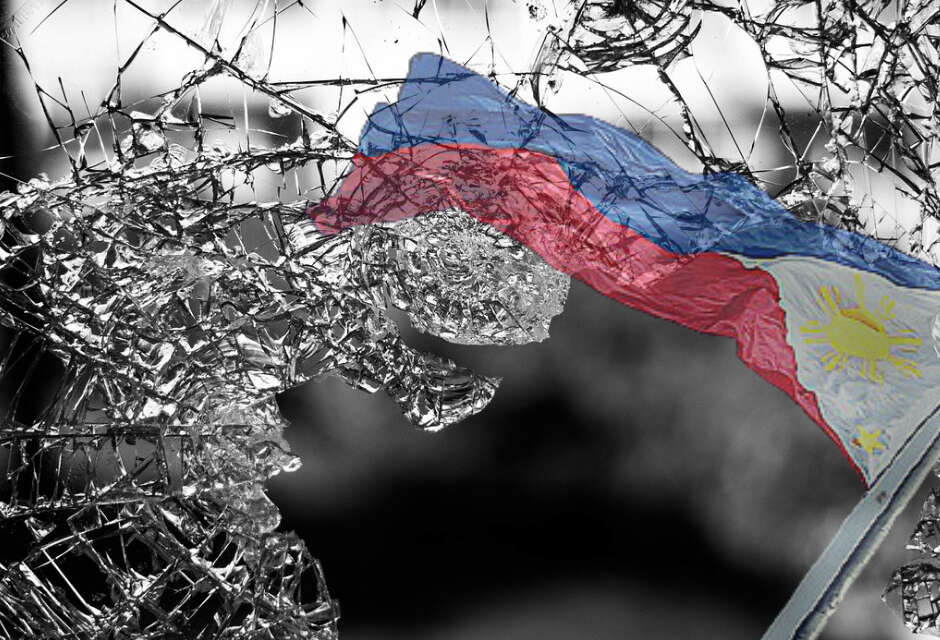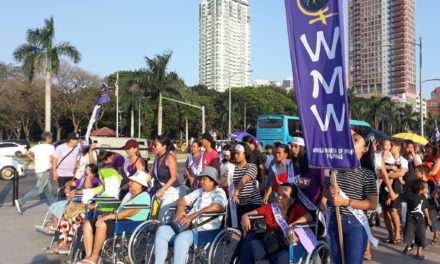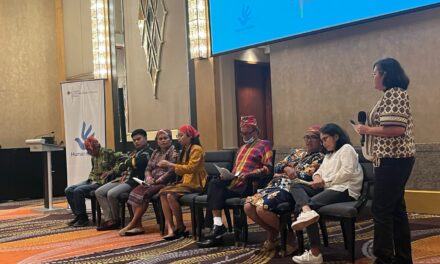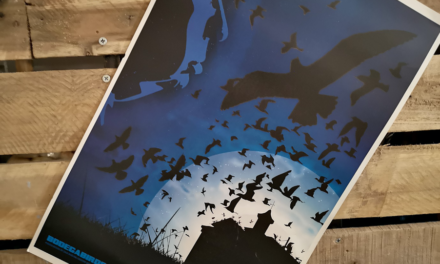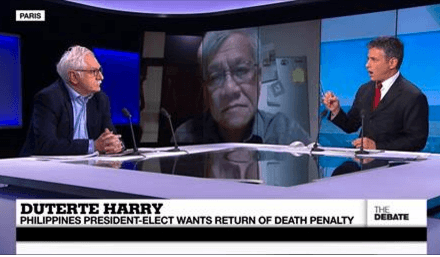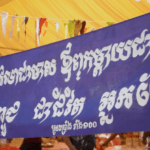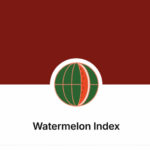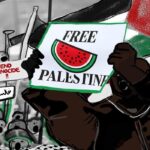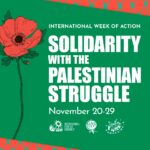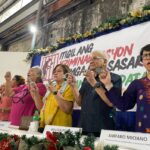#Duterte and the Damage Done
Focus on the Global South has been examining the yearly State of the Nation Address (SONA) since Gloria Macapagal Arroyo’s term in the early 2000’s. This yearly democratic tradition copied from the United States, which dates back to 1935– is a significant political occasion where upon the invitation of Congress, the President of the Republic addresses both Chambers of Congress, and the Filipino people to report on the state of the nation.
Through the years, the inaugural SONAs have been the platform for newly elected Presidents starting a six year term to present a vision of governance and communicate plans and priorities of the new administration. The sixth and final SONA on the other hand, is expected to be about legacy; an opportunity to highlight not just the administration’s key achievements but to look back and reframe the entire term for its contributions to fulfilling the long term aspirations of building a stronger more progressive Republic. A president’s last SONA is also a good opportunity for the outgoing administration to pinpoint the outstanding governance challenges for the next administration to consider as the nation moves to a peaceful transfer of power.
Some may argue that the country has been in crisis over the last 5 years of the Duterte administration. But the last couple of years, under the Covid pandemic, has magnified the situation all the more. In our assessment of his 2020 SONA we described the administration as a ‘Moribund Presidency”; at the point of death because of its clear failure of leadership especially in the time of an unprecedented crisis.
“In the middle of the COVID-19 pandemic—a period marked by rising infections, an overwhelmed healthcare system, and an impending economic recession—the state of the nation demanded a show of fortitude and resolve from President Rodrigo Duterte and his government to move the country forward, as well as a show of leadership to rally the people in overcoming the enormous challenges before us. We saw and heard nothing of that in the President’s 5th State of the Nation Address (SONA). What the President has shown was the opposite: incompetence and a serious and dangerous lack of leadership.”
The legacy SONA that everyone was expecting was not delivered. Instead, we heard Duterte going off script (again), a pattern in previous SONAs, into his consistent comfort zones– the war on drugs, the fight against the oligarchy–topics that seem to energize him, and where he is able to project his power, particularly targeting the support base that elected him as a tough talking, strongman at war with criminality and the domination of the elites.
Instead of reflecting on Duterte’s last SONA, the Philippine team of Focus would share articles over the course of the month that highlight key concerns that underscore the damage that the Duterte administration has inflicted on the nation.
We kick off with a piece on the human rights crisis and the continuing struggle for social justice under Duterte that was presented on behalf of iDEFEND at the UNHRC 47th session side event organized by Forum Asia, the Philippine Alliance of Human Rights Advocates (PAHRA), and Franciscan International held last 30 June 2021.
———-
Crisis and the Continuing Struggle for Social Justice and Human Rights under Duterte
By Joseph Purugganan
To push back against increasing international pressures and allay growing concerns over its track record on human rights, the Duterte administration put out its own human rights report in 2020 which advanced the narrative that these issues being raised by various individuals and groups in international spaces such as the UN Human Rights Council, and the European Parliament, which paint a bad picture of the human rights situation in the Philippines, are not true or grossly exaggerated. Furthermore, this concerted effort is nothing more than the handiwork of small, but well funded communist-terrorist groups aiming to spread lies and false information. This narrative is an attempt to frame the discussion on human rights in the Philippines using the lens of counter-insurgency and counter terrorism, effectively denying peoples and communities, who are victims of human rights violations and abuses, the voice and the agency to express dissent and push back threats to their rights and freedoms.
The Report of the High Commissioner for Human Rights on the Human Rights Situation in the Philippines presented at the 44th Session of the Human Rights Council in 2020 underscored: “(that) the killings related to the anti-illegal drugs campaign appear to have a widespread and systematic character.”
While the report drew particular attention to the human rights impact of the government’s bloody war on drugs, it sharply pointed out as well that the State’s scaled up response to counter terrorism and conflict also impact on human rights. The report pointed to “national security laws and policy, and their acute impact on civil society,particularly through the phenomenon of “red-tagging”.
The report also gave particular emphasis on the situation of indigenous peoples, farmers and internally displaced persons. It noted how “powerful business and political actors have consistently undermined efforts at land distribution and agrarian reform;and the institutional challenges and weaknesses to the full realization of indigenous rights already enshrined in both national and international laws.
The report echoed concerns over large-scale projects to which indigenous communities have not consented, including the Kaliwa dam project in Quezon and where State officials have threatened to push projects through. The grave concern over the killings of and persistent attacks against land and environmental rights defenders was also expressed in the report.
IDEFEND contributed inputs to the High Commissioner’s report through a number of submissions made outlining our assessment and recommendations related to the War on Drugs, on impunity, on the shrinking of democractic space, and on economic, social and cultural rights violations.
Our submission on ESCR and Social Justice in particular highlighted a number of emblematic struggles, raising social justice concerns and drawing attention to escr violations.
The Duterte administration has been accused of directly violating human rights and/or complicity to human rights abuses perpetrated by corporations in a number of emblematic cases, like the attacks and killings of farmers and indigenous peoples; the aggressive push for mega infrastructure projects like the Kaliwa dam, impunity of mining companies particularly in the cases of Didipio in Nueva Vizcaya, and Tampakan Gold Mining project in South Cotabato, the militarization and corporate abuse in the case of Tamasco in Lake Sebu in South Cotabato.
The violence and human rights violations, sad to say, have persisted across these particular cases that we highlighted in our submission. Furthermore, the concerns raised in the report of the High Commissioner have not only persisted but have in most cases taken turns for the worse.
Farmers, fishers, rural women and indigenous peoples and their communities face continuing assaults on their rights. These attacks and threats are coming from corporations that are able to use the legal system to undermine people’s rights. Corporations have managed to secure court orders that lead to demolition of houses and displacement, usually in connivance with local and national government officials.
The threats are also coming from government agencies themselves, and proponents of government mega infrastructure projects that circumvent processes to secure peoples consent such as the free prior informed consent or FPIC process and environmental compliance certificates. Opponents of these projects are branded in official reports as “anti-progress radicals” playing further into the counter terrorism/insurgency narrative.
The attacks against indigenous peoples have been relentless. Figures shared by the Cordillera Peoples Alliance (CPA), show that under the Duterte administration (2016-2020), a total of 76 individuals have fallen victim to extra judicial killings with around 137 victims of frustrated EJKs; 182 IPs have been illegally arrested, detained, and abducted; and 27 reported being subjected to torture. CPA also reported 6 cases of enforced disappearance among IPs.
There are also worrying news about killings and displacements from their lands experienced by non-moro indigenous peoples in the Bangsamoro Autonomous Region in Muslim Mindanao.
From discussions with grassroots community leaders we see a grim picture of the situation on the ground: Communities resisting these projects and advocating for economic and social rights face problems on three fronts-
First, the increasing threats arising from increased military presence and militarization in the name of counterinsurgency led by the National Task Force to End Local Communist Armed Conflict or NTF-ELCAC. The OHCHR report already took note of concerns over the implementation of the Executive Order No. 70, the policy that created the NTF ELCAC.
Since the High Commissioner’s report, we have seen an even more aggressive mobilization of the whole-of-government from national to local against suspected communist sympathizers. Red tagging–a tactic whereby individuals are labelled as communists or terrorists – often without substantial evidence – has become a central component of the governments playbook.
As the OHCHR again warned “such public labelling” has proven to be extremely dangerous. In December 2020 for example a red-tagged doctor and her husband were gunned down in broad daylight by unknown assailants in Negros Oriental.
In January 2021, a list on the Facebook page “Armed Forces of the Philippines Information Exchange ” falsely named 27 people supposedly former students in the University of the Philippines who became (members of the) NPA [New People’s Army] have died or been captured. Many on the erroneous list had to issue public statements to clear their names, fearing that their appearance on the list would lead to deadly repercussions.
The red-tagging spree also did not spare even spontaneous expressions of citizen’s actions and responses to the pandemic. NTF ELCAC claimed that communist insurgents or sympathizers were behind the community pantries that sprouted as people’s initiatives to provide mutual aid.
These shameful acts of red tagging, as one Senator put it by the NTF ELCAC have led to Congressional inquiries into red tagging with the possibility of enactment of legislation outlawing the practice; and has spurred calls for Congress to defund the task force.
While there clearly is a push back from the people and institutions on certain tactics employed by the government in its counterinsurgency program, the Duterte government seems hell bent to intensify its actions further.
Second threat faced by communities is from the big development projects. The emblematic cases of Kaliwa Dam, and Didipio Mining project just to name a few are clearly being rammed through despite people’s opposition. The designation of these projects as critical infrastructure projects also add another dimension to the struggle for communities resisting these projects. Under the newly passed Anti-Terror Law with its broad definition of terrorism, not only acts intended to cause damage but threats to commit acts that could cause damage to critical infrastructure will be considered acts of terrorism.
And lastly, on top of it all, these communities are reeling from the impacts from the Covid-19 pandemic. Millions of workers have lost their jobs, livelihoods of farmers, fishers and indigenous peoples have been severely affected. And there has been limited support from the government by way of continuing and sustained relief.
Aside from Covid, basic sectors must also face the impacts of agricultural policies like the Rice Trade Liberalization Law that has devastated the livelihood of local rice farmers; hog raisers are reeling from the impact of the African swine flu and are increasingly worried over proposals to allow greater volumes of imported meat.
The Covid recovery program poses a big challenge for grassroots communities as the plan pushes for business as usual policies; more free trade agreements, more foreign direct investments; more infrastructure investments and mega projects like big dams, mining and plantation projects.
We have already seen the recent lifting of the ban on new mining permits pushed in the name of Covid recovery. Proposals for amendment of fisheries policies to allow large scale fishers within municipal waters have been floated in the name of recovery as well. And there are also reversals in agrarian reform with farmers losing control over lands already transferred to them under the CARP.
The proposals to amend the Constitution to remove so-called ‘nationalist economic provisions’ in order to liberalize the Philippine economy further to the entry of foreign capital could also lead to more conflicts over land and natural resources.
This is a rough snapshot of the current challenges to the realization of ESCR and social justice in the Philippines.
Our main contention is that the overall human rights situation has become worse since the OHCHR report of June 2020.
We contend further that the widespread and systematic violations of human rights result not just from the anti-illegal drug campaign of the government, nor just from its intensified counterinsurgency program, but from the relentless pursuit as well of a pro-corporate development agenda.
The late Chilean Diplomat Orlando Letelier writing on the issue of human rights under the Pinochet Dictatorship in Chile, warned us already in an essay published in 1976 of the “failure to connect the violation of human rights, the system of institutionalized brutality, the drastic control and suppression of every form of meaningful dissent to the classical unrestrained “free market” policies.” To paraphrase Letelier: We should not fall into the same trap of publicly praising and supporting the economic policies adopted by the Duterte government, while regretting the “bad international image” from the EJKs and war on drugs.
We appeal for continued vigilance of the UNHRC on the situation in the Philippines. We appeal to States not to buy into the narrative being pushed by the Duterte administration that there is no human rights crisis in the Philippines, and that it is doing its best to address problems and issues within its jurisdiction. We appeal to UNHRC to sustain its actions to arrest the deteriorating condition of human rights in the Philippines, highlighting not just the issue of civil and political rights violations but likewise and with equal importance violations of economic, social and cultural rights
We seek your support as the broad human rights movement in the Philippines, along with the local communities, demand for state accountability and justice for the victims.
We continue to ask for global solidarity in the wake of this human rights crisis, as we persist with our struggle for social justice, human rights and dignity for all.

